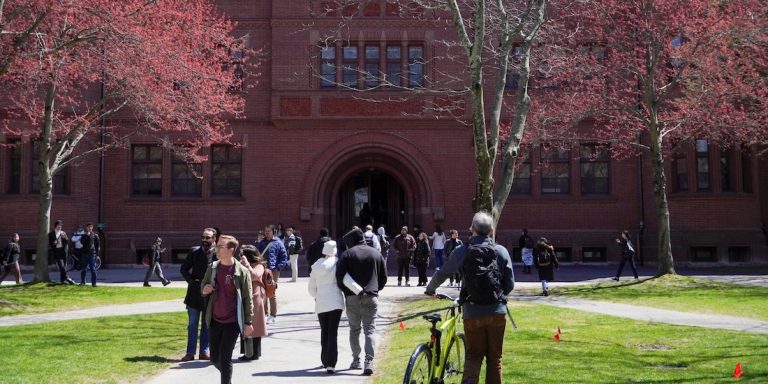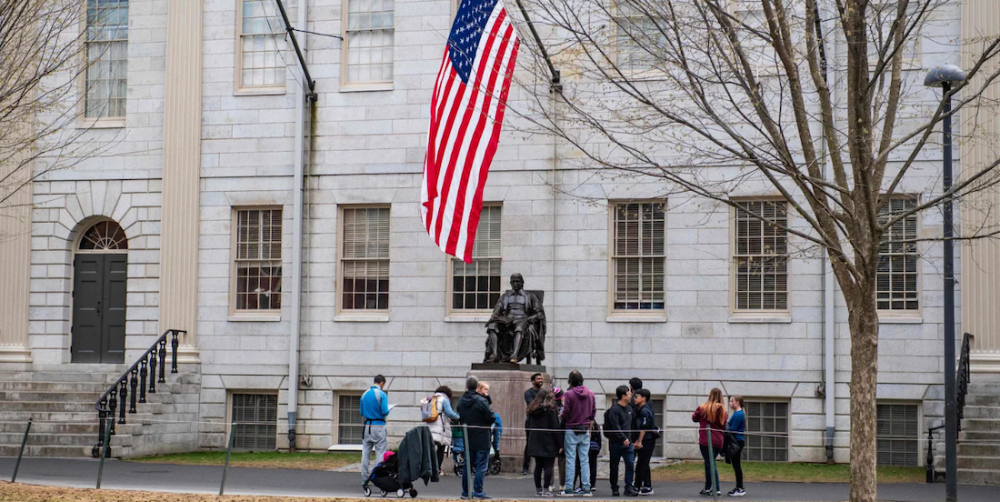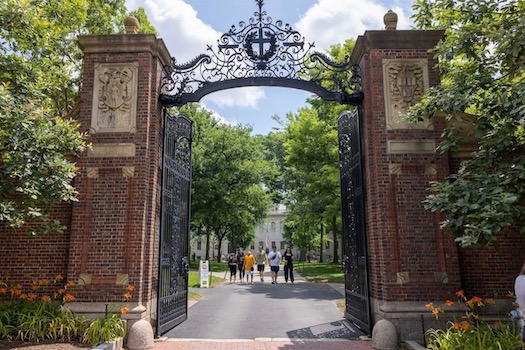
Federal agencies implement sweeping restrictions targeting America’s oldest institution amid broader crackdown on elite education
New York, N.Y. – The Trump administration has intensified its confrontation with Harvard University, implementing sweeping restrictions that have sent shockwaves through America’s higher education landscape.
What began as criticism over campus protests has evolved into a comprehensive assault on one of the nation’s most prestigious institutions, raising fundamental questions about academic freedom and federal overreach.
Federal Agencies Target Harvard Operations

Homeland Security Secretary Kristi Noem ordered the department to terminate Harvard University’s Student and Exchange Visitor Program certification effective for the 2025-2026 school year.
This effectively blocking the university from enrolling international students.
This unprecedented move affects thousands of current and prospective students from around the world.
In a cable dated May 30th and sent to all U.S. diplomatic and consular posts, U.S. Secretary of State Marco Rubio instructed the immediate start of “additional vetting of any non-immigrant visa applicant seeking to travel to Harvard University for any purpose.”
This directive represents the most aggressive targeting of a single academic institution in modern American history.
The State Department has also ordered U.S. embassies worldwide to stop scheduling interviews for student visas as the Trump administration weighs stricter vetting of applicants’ social-media profiles, creating a chilling effect across international education.
University Fights Back Through Legal Channels
Harvard has not remained passive in the face of federal pressure. A U.S. judge on Friday temporarily blocked the Trump administration from revoking Harvard University’s ability to enroll foreign students, providing temporary relief while legal proceedings continue.
The University will not surrender its independence or relinquish its constitutional rights. Neither Harvard nor any other private university can allow itself to be taken over by the federal government, Harvard declared in its federal lawsuit challenging the administration’s actions.
Harvard President Alan Garber has taken a defiant stance, telling universities they should “stand firm” against federal pressure. Cutting off research funding for Harvard University might hurt the school, its president Alan Garber told NPR, but it also potentially sets back important work that benefits the public.

Noem accused the university of “fostering violence, antisemitism,
and coordinating with the Chinese Communist Party.”
Administration Justifies Actions Through Security Concerns
The Trump administration has framed its actions as necessary responses to campus antisemitism and foreign influence.

Noem accused the university of “fostering violence, antisemitism, and coordinating with the Chinese Communist Party.”
These allegations stem from campus protests following the October 7, 2023, attacks on Israel and subsequent events in Gaza.
In a post on Truth Social, Trump said the home countries of some of Harvard’s international students are “not at all friendly to the United States” and “pay NOTHING toward their student’s education.”
This rhetoric reflects the administration’s broader America First approach to international education.
Secretary of State Marco Rubio on Friday ordered more scrutiny of the social-media profiles of any foreigners seeking to visit Harvard University, telling U.S. consular officers that applicants’ lack of an online presence might be enough evidence to deny a visa.
Broader Implications for Higher Education: Culture War
The Harvard confrontation represents more than an isolated dispute between one university and the federal government. Education experts worry about the precedent being set for academic freedom and institutional autonomy across American higher education. The targeting of elite institutions signals a broader cultural and political battle over higher education’s role in American society.
International students and faculty members at universities nationwide are watching the Harvard situation closely, as the outcome could affect America’s position as a global education destination. The restrictions have already created uncertainty among prospective international students considering American universities.
The controversy has also highlighted the complex relationship between federal funding, regulatory authority, and academic independence. As universities receive billions in federal research funding, the Harvard case tests the limits of government leverage over private institutions.